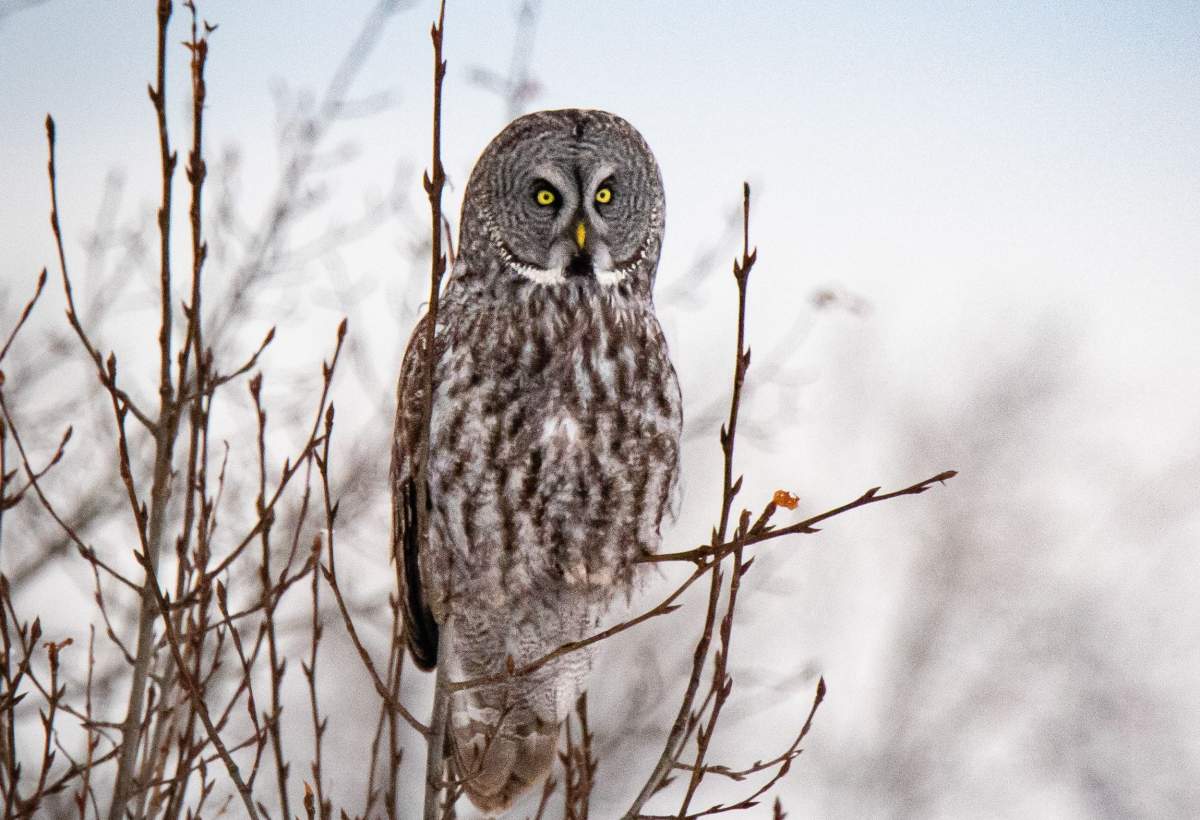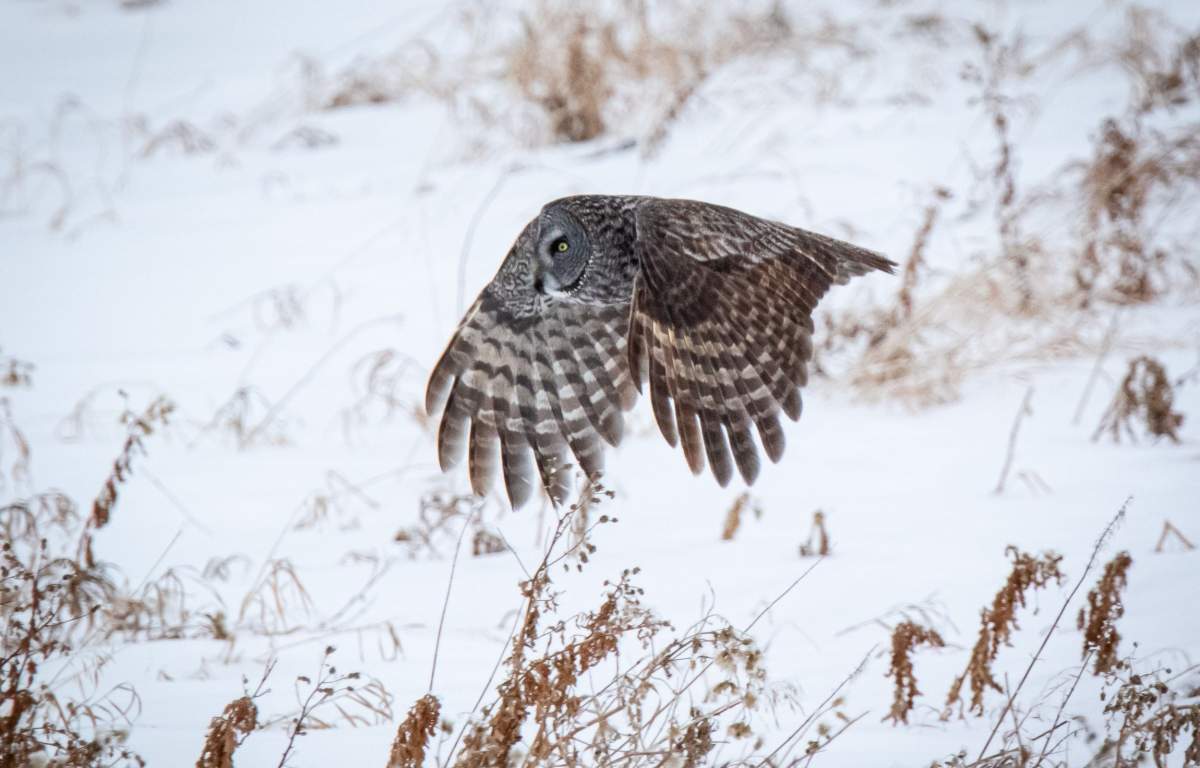A retired University of Saskatchewan astronomy instructor offers guided birding tours out of Saskatoon in an effort to help injured and orphaned animals.

Besides looking at the origins of the universe, Stan Shadick also has some experience looking for birds – around 50 years’ worth.
“Birding has been pastime or a hobby of mine for many decades. I guess I’m interested in studying and observing and listening to the varied colours and musical songs that Saskatchewan’s birdlife create for us,” he said.
“Birding is also interesting because they’re always moving, so there’s always the possibility that something unusual flies into our area. So a rarity or something might show up from time to time which always creates excitement in the birding community.”
Since retirement a few years ago, Shadick’s been volunteering his time and expertise to show people the assortment of birds available for viewing in the province.
“One of the sites south of (Saskatoon) where the chickadees over the years have become relatively tame … and we supply some birdseed and the chickadees come in and land on your hand and it’s an incredible experience just to feel how light they are,” he said.
“Another example that’s been popular this winter has been a longer trip to see the great grey owl … They have a huge sort of facial discs that help concentrate the sound towards their ears, reflect the sound towards their ears, which means they have incredible hearing and so they can actually hear a mouse running underneath the snow.
“They fly over maybe a weedy field and plunge through the snow to catch a mouse and maybe sit on the mouse for a few seconds on the ground and then … they fly back up to a tree branch.”
The tours offer a chance to experience the great outdoors and connect with nature, while adhering to COVID-19 public health orders.
“We have to modify what we do, depending on whatever the current COVID rules are at the time,” Shadick said.

Get daily National news
“It’s quite safe to have people, of course, drive in separate vehicles … and for several of our trips, it works very nicely if even if you stay inside a vehicle because a vehicle tends to act as a blind for some of these birds and so you actually get a better view.”
Shadick said interest in birding continues to elevate even with the ongoing pandemic.
“There seems to be quite an increase in interest in birding … Because of COVID, a lot of people are taking up birding as a hobby, it seems, this year. So we’re getting a fair bit of interest,” he said.
“A lot of people are not able to go away out of the province on vacation so it’s a chance for them to actually experience nature here in Saskatchewan. There’s lots to see and hear right at home.”
All of the proceeds from the year’s tours go towards the efforts of Living Sky Wildlife Rehabilitation in Saskatoon.
“(It is) a charity that looks after injured and orphaned birds and small mammals,” Shadick said.
“You never know when somebody is going to come in with some bird that’s hit their window, for example, and need some care for a few weeks, or a bird that has been injured by some man-made activity, flew into a power wire or what have you. Or maybe somebody shot the adult and the young are still around.”

Shadick said he currently holds the eBird record for most bird species seen in the province.
“There is a few keen birders … who are somewhat competitive and so birding can also be described as a sport and so people interested in that side of birding are trying to see as many different kinds of birds as possible,” he said.
“I’m currently on top simply because I’m probably been birding in Saskatchewan longer than most other birders but there’s several people that are getting close to my number. I’ve seen 350.”
Questions about COVID-19? Here are some things you need to know:
Symptoms can include fever, cough and difficulty breathing — very similar to a cold or flu. Some people can develop a more severe illness. People most at risk of this include older adults and people with severe chronic medical conditions like heart, lung or kidney disease. If you develop symptoms, contact public health authorities.
To prevent the virus from spreading, experts recommend frequent handwashing and coughing into your sleeve. They also recommend minimizing contact with others, staying home as much as possible and maintaining a distance of two metres from other people if you go out. In situations where you can’t keep a safe distance from others, public health officials recommend the use of a non-medical face mask or covering to prevent spreading the respiratory droplets that can carry the virus. In some provinces and municipalities across the country, masks or face coverings are now mandatory in indoor public spaces.
For full COVID-19 coverage from Global News, click here.







Comments
Want to discuss? Please read our Commenting Policy first.